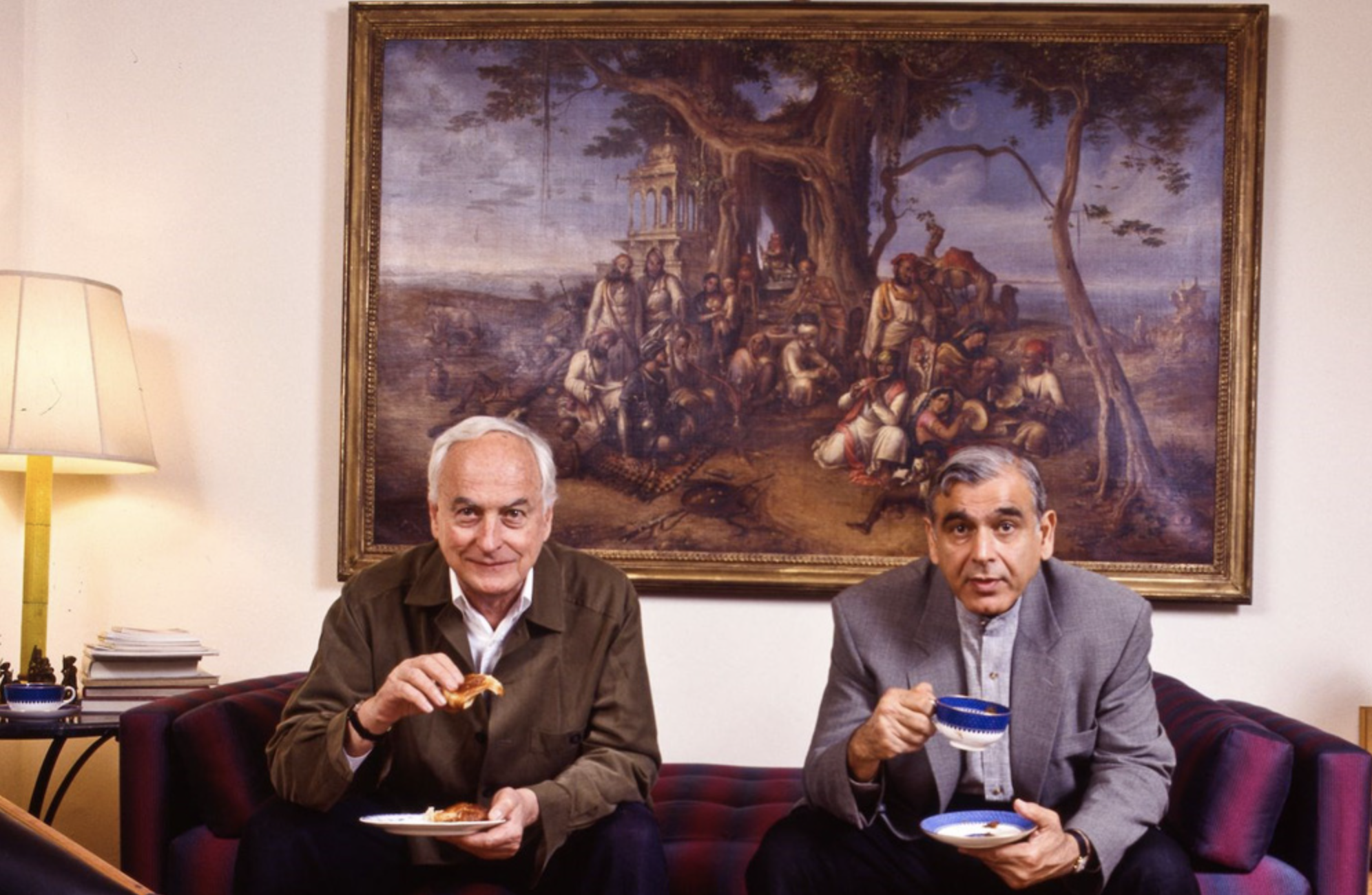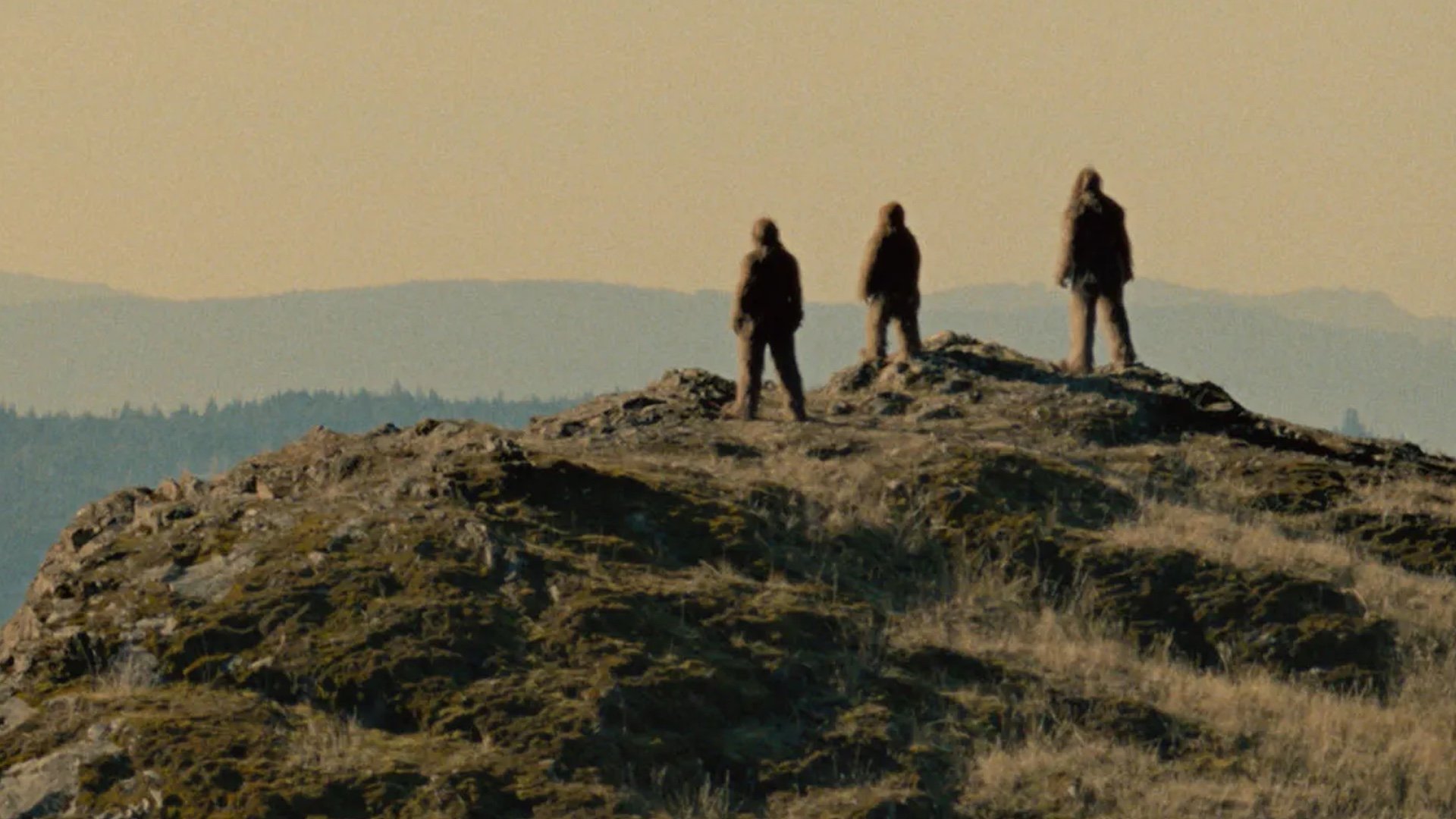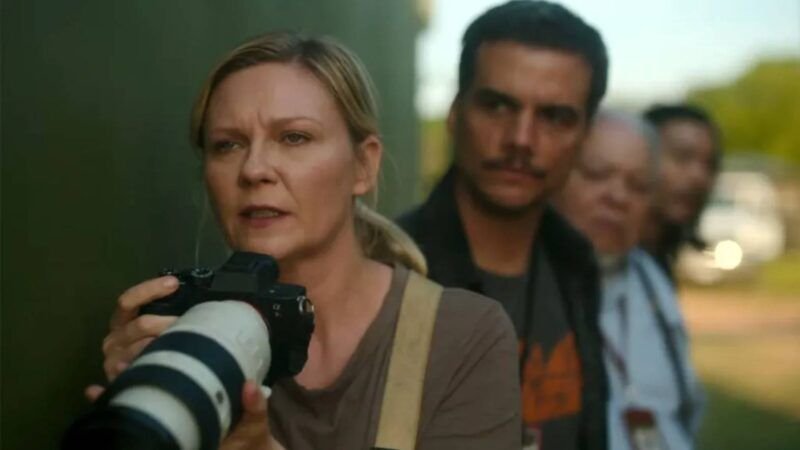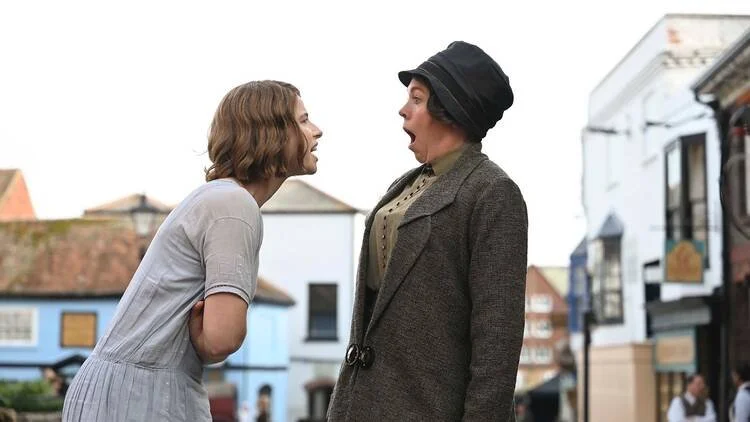SIFF Advance: THE SUMMER WITH CARMEN
Directing: B
Acting: B
Writing: B
Cinematography: B+
Editing: B-
There’s a lot of dicks in The Summer with Carmen. It’s largely set at a clothing-optional queer beach in Athens, Greece, where platonic friends Demosthenes (Yorgos Tsiantoulas) and Nikitas (Andreas Labropoulos) hash out the plot points of a movie script. Nikitas is directing and Demosthenes is maybe starring, and they are co-writing the story based on Demosthenes’s recent life experiences, including an ambivalent love life with Panos (Nikolaos Mihas) and a passive aggressively homophobic mother (Roubini Vasilakopoulou). We see the scenes they discuss play out in flashbacks, regularly cutting back to this day at the nude beach, where occasional hookups are playing out in the open around them, but Nikitas and Demosthenes are concentrating on their scripts, occasionally taking breaks to swim.
There is always a subtle, tongue-in-cheek presentation to The Summer with Carmen, where the story playing out pointedly reflects the plot constructions of their script, or even more on the nose, the script writing book Nikitas has with him as a reference. There’s also the unseen producer they talk about, who wants their movie to be “fun, sexy”—and so, Greek director and co-writer Zacharias Mavroeidis wants us to think of The Summer with Carmen as “fun, sexy” primarily by giving us plenty of close up shots of butts and cocks attached to generally hot bodies at a nude beach.
The metatextual approach was once something I found myself really into as a narrative device—I used it a lot in my own writing 25 years ago—but it has long since lost its novelty. What I’ll give to The Summer with Carmen is the casual way it’s used, in a very laid back, beach-stained story. I use the word “beach” loosely here, as this queer beach is mostly large rocks. I have clearly gotten old, because in one scene, Demosthenes bounds up some rocks in the nude, and rather than admiring his incredible body I just worried about how badly he could hurt himself if he slipped and fell.
There’s a fair amount of sex in this movie, but very little of it at this beach where you might expect to see most of it. The few times it does come up is as humorous asides, such as when Nikitas feels bad for an older man trying to get a “pervy peek” at two other guys who tell him to fuck off. The sex actually serving the story happens in the flashbacks that make up the scenes Nikitas and Demosthenes are writing, in which Demosthenes hooks up with guys in the wake of his breakup with Panos, all the while leaving Nikitas unattended to as his close friend.
That is what The Summer with Carmen is about, really: Demosthenes and Nikitas’s friendship. I always enjoy when a movie focuses on friendship more than romance, as it still gets sidelined most of the time, and especially when it’s between two characters that many writers would want to give some kind of romantic tension. Even in stories about gay friends, writers often throw in something about how they tried to be romantic and it never worked. There is no indication that Demosthenes and Nikitas ever had any romantic or sexual interest in each other, only that they have always been close friends and collaborators.
That said, the cynical side of me doesn’t feel that bad for Nikitas. Romance taking priority over friendship is just the way the world works, and it kind of feels like Nikitas is just pouty and doesn’t understand that. Through the course of this movie, though, we get title cards about the rules of script writing, while it identifies Demosthenes as “The Hero” (and Nikitas as “The Heroe’s Friend”), and that according to the basic rules of script writing, The Hero must learn something and change in some way by the end. In The Summer with Carmen, Demosthenes changes, to one degree or another, in both his romantic and platonic relationships. Except he very directly addresses the fact that scripts only end there and never reveal the frequency with which people just go back to their old habits.
There is a certain cleverness to The Summer with Carmen—the Carmen of the title is a dog, by the way, which Panos adopts after the breakup, and then Demosthenes becomes attached to after offering to pet sit, it’s a whole subplot with a somewhat nebulous reflection of the primary plot. It also has undeniable charm, especially with its breezy yet frank reflection of sexuality among gay men in their thirties.
There is nothing profound or deeply memorable about this movie, nor does it aspire to these things. In fact, it’s very direct about its aspirations to be simply fun and sexy—although Demosthenes and Nikitas also discuss the complications of throwing in heavy themes like homophobia and an ailing parent. The Summer with Carmen never gets too heavy with these things, though, and uses them only to give its characters a measure of weight. I felt the editing could have been tighter, the ton of this movie being more suited to a breezy 90 minutes than even the 106 minutes it runs. But, I still had a lovely time with it.
Sun’s out, plot turns out: Nikitas and Demosthenes rehash their lives in a script written in the buff.
Overall: B










